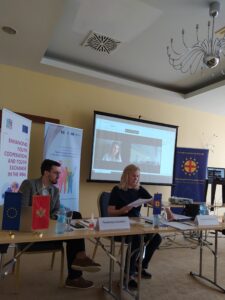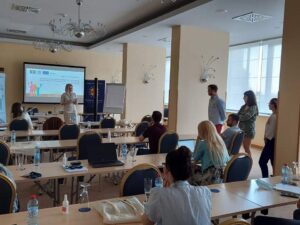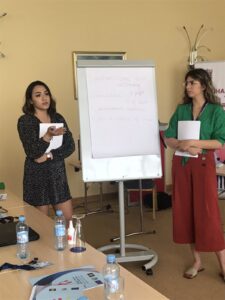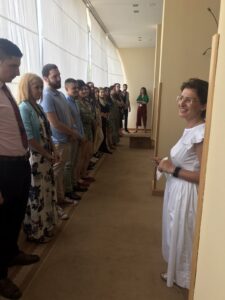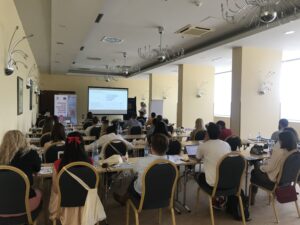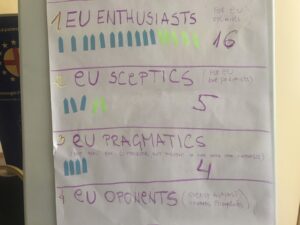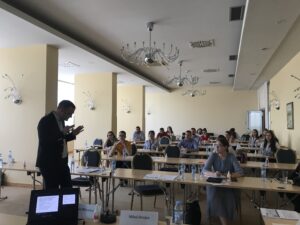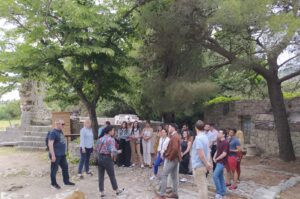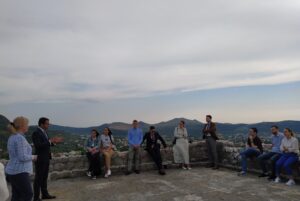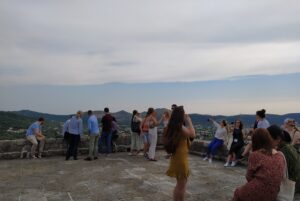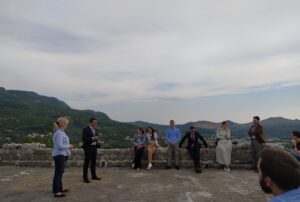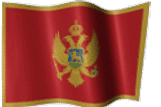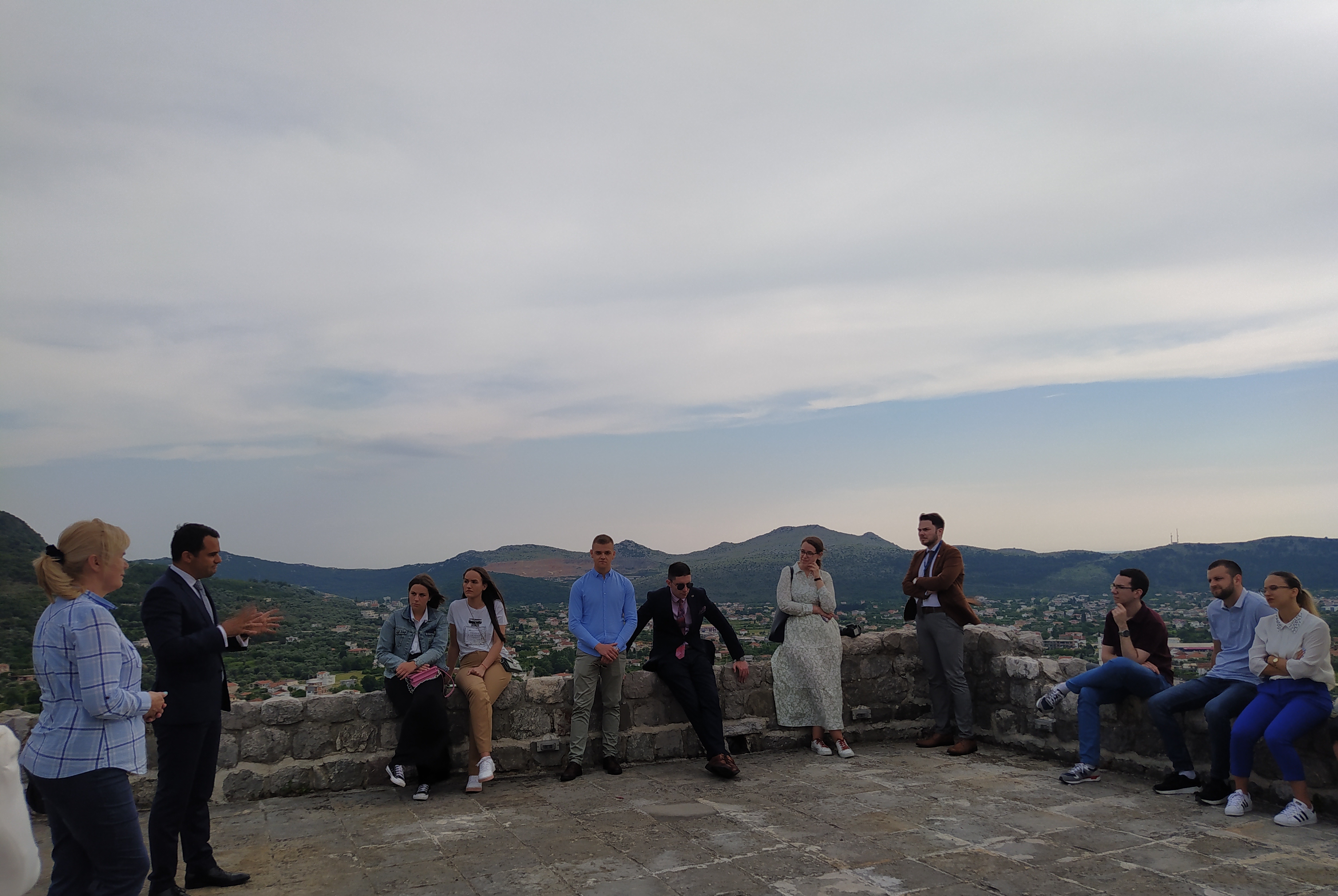On the second and third day of the Regional summer school, participants had lectures on populism, Social Cohesion and Reconciliation Index (SCORE), and human rights and identity.
At the first lecture – „Democratic principles: Populism and youth attitudes towards different ethnic groups“, doctoral student Nemanja Stankov, and professor Olivera Komar from the University of Montenegro spoke about the concept of populism, ethnic and social relations. The lecture was followed by a workshop led by Anida Sabanovic from the Foreign Policy Initiative BA. Workshop – „Who ‘likes’ populists? Let’s talk democracy and identity in the region!“ was very interactive. Participants were divided into groups. The first group represented that populism is a positive thing; the second group represented that populism is a negative thing, while the third group consisted of judges. As positive examples of populism, the group advocated that position cited the black lives matters campaign in USA, encouraging vaccination in Serbia by paying citizens a certain amount for it, as well as making people realize more quickly that they have power in their hands. As negative examples of populism, the group that advocated that position cited the manipulation of people and facts, the dichotomy worldwide, and the lack of a balance of power.
The lecture by Elma Tershana from the partner organization of the Observatory for Children and Youth Rights, presented SCORE Index, introduced the participants to this concept and showed through interactive game that the way young people view each other speaks about their tolerance and attitudes towards other identity groups.
After the lecture, the participants of the Regional Summer School had the opportunity to visit Old Bar and talk to the Mayor of Bar, Dusan Raicevic. The Mayor spoke to the young people about the history of the city of Bar, its sights, life in the city where members of all confession live in peace.
At the panel discussion, the President of the Montenegrin Pan-European Union, professor Gordana Djurovic presented the findings of the questionnaire that the MPEU conducted at the beginning of the project. The questionnaire was related to the attitudes of young people about democracy and European values, identity, employment, education and mobility. At the end of the panel discussion, participants voted on whether they are Euro-Enthusiasts, Euro-Sceptics, Euro-Pragmatics or Euro-Opponents.
In a lecture on human rights and identity led by professor Milos Hrnjaz, young people had the opportunity to discuss the complexities of these two concepts. The concluding messages of this lecture were that every person has the right to choose their own identity, the right to know their own culture, the right to participate in the creation of spiritual, material and intellectual expression of the community.
